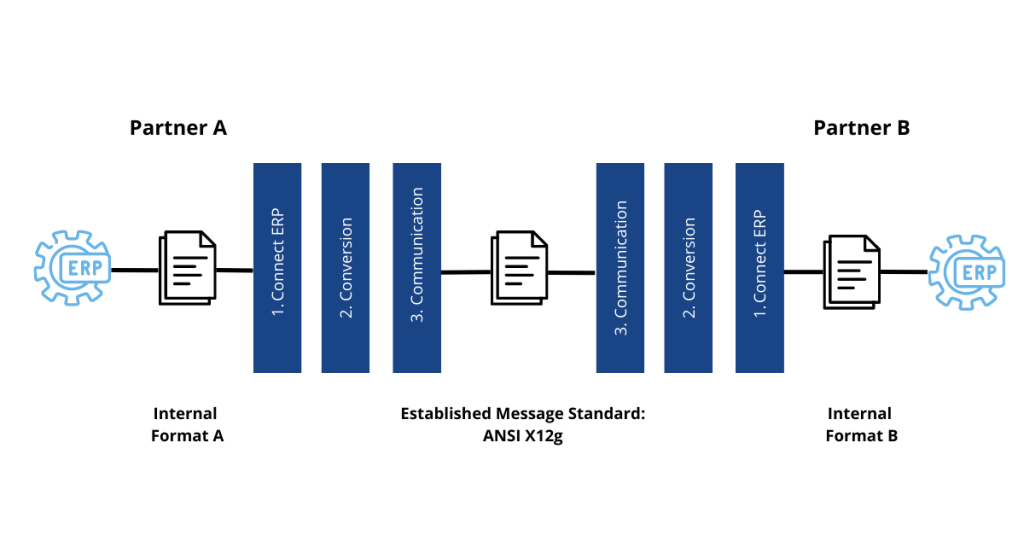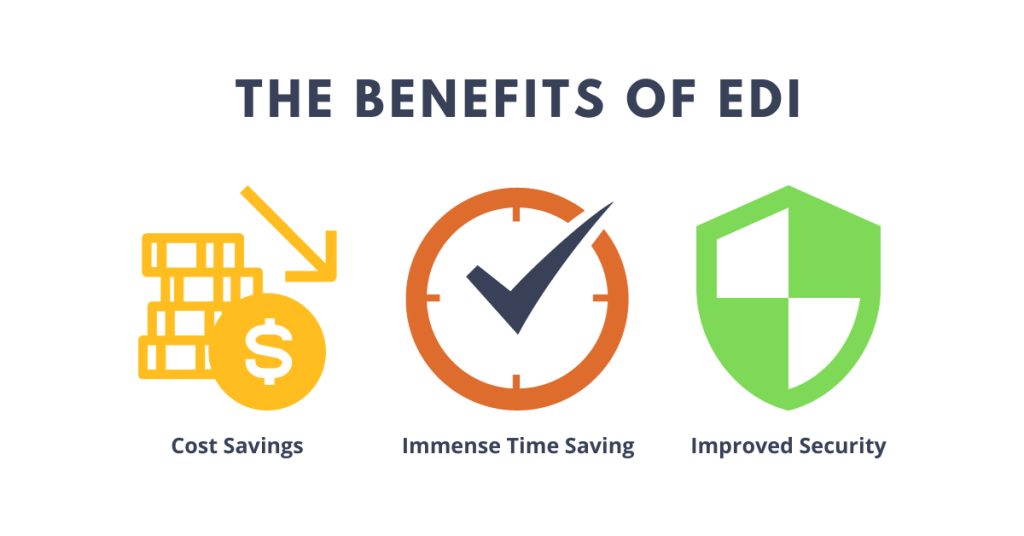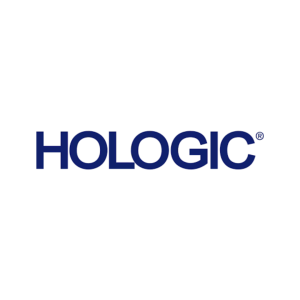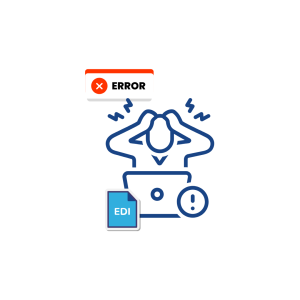What Does EDI Capable Mean?
EDI capability refers to the ability of a business to use EDI to send and receive EDI documents electronically with partners, vendors, suppliers, and other customers. This includes things like whether the company has the software needed to send and receive EDI messages.
To become EDI capable there are two options, either running an EDI solution on-premises in an own or 3rd party data center or buying the EDI capability as an EDI cloud service.
An enterprise must be able to send and receive standardized electronic documents like EDI X12, EDIFACT, Tradacoms, and many more. When your organization is EDI capable, you are at an advantage in the business world with a greater chance for success. Utilizing these standard data formats is the most significant aspect of EDI since the exchange of documents will be effective only if both, the sender as well as receiver systems are working with similar data formats.

Being EDI capable means the ability for businesses to exchange business documents/data with their trading partners electronically such as,
- Invoices
- Purchase orders
- Advanced ship notices
- Bills of lading
- Inventory documents
- Customs documents
- Shipping documents
- Payment documents
Why Should You Care About being EDI Capable?
If you work with any type of business, you should care about EDI because it allows companies to communicate in a standardized way which is more efficient, saves money and time by reducing errors and increasing accuracy.
How Does EDI Work?
EDI works by exchanging documents electronically. This means that instead of sending paper copies of contracts, invoices, and other documents, businesses send them digitally in a standardized format.
There is a 3-step process to send and receive EDI documents,
- Connection to ERP – Receive messages in internal format from the ERP system
- Conversion – Transfer messages from the internal format to the message standard
- Communication – Technical dispatch via the agreed communication protocol

How Does Making your business EDI Capable Benefit Your Business?
EDI has been around since the 1970s, but its use has only increased in recent years. In fact, according to a recent study, more than 75% of businesses are now using EDI to communicate with their business partners. That number is expected to increase as more businesses adopt EDI technology.
Being EDI capable is an advantage. Retailers seek out EDI-capable suppliers when considering new items. They focus on relationships with those who are ready for EDI. And you’ll fast-track the onboarding process, so your products are in stores and online sooner.
Generally, any sized organization can reap the benefits of being EDI-capable. Other than offering standardized communication for sending and receiving business documents such as Purchase orders EDI 850, Invoices EDI 810, Payment order/remittance advice EDI 820, Functional acknowledgments EDI 997, to trading partners, vendors etc. EDI solutions create benefits in cost savings, speed, accuracy, effectiveness, and security.
Here are a few more benefits of becoming EDI capable,
- Increase efficiency and accuracy through automation
- Be ahead of your competition
- Pack and ship orders faster
- Ability to transact with more partners
- Heightened security
- Faster processing speed
- Better for the environment
- Reduce cost

Conclusion
Being EDI capable signifies a business’s readiness and ability to engage in seamless Electronic Data Interchange (EDI). It involves the capacity to send and receive standardized electronic documents, adhere to EDI protocols, and integrate these processes into the broader business ecosystem. EDI capability not only enhances operational efficiency but also positions organizations to collaborate effectively in today’s digitally interconnected business landscape
Affordable and Top EDI Solution Provider in North America
For over 35 years, Commport Communications has been providing the most affordable and best EDI solutions in the market. By helping companies solve complex integration issues and providing complete EDI communication between business partners.
Improve your business process and maximize your supply chain performance with our EDI solutions. Contact us today for a free consultation and demo.
Want to Become EDI Complaint Today?
Need Help? Download: EDI Buyers Guide
Unlock the full potential of your supply chain with our comprehensive EDI Buyer's Guide — your first step towards seamless, efficient, and error-free transactions
Frequently Asked Questions
Being EDI capable means that a business has the technological infrastructure and processes in place to send, receive, and integrate standardized electronic documents in compliance with EDI standards.
No, EDI capability is relevant for businesses of all sizes. Smaller enterprises can benefit from streamlined processes and improved communication with trading partners by becoming EDI capable.
Being EDI capable involves adherence to standards such as EDIFACT, ANSI X12, or industry-specific formats. It ensures that electronic documents are formatted in a standardized way for consistent data exchange.
Yes, businesses can achieve EDI capability through specialized EDI software solutions. These solutions facilitate the translation, mapping, and transmission of electronic documents, making it easier for organizations to become EDI capable.
Being EDI capable contributes to business competitiveness by improving efficiency, reducing errors, and enabling faster and more accurate communication with trading partners. It enhances the ability to adapt to digital supply chain demands and fosters collaborative relationships in the modern business landscape.





